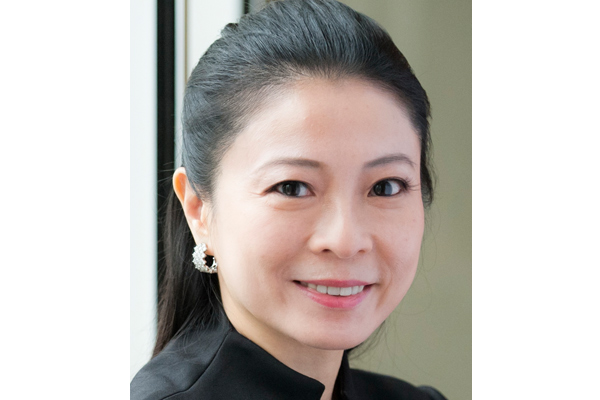
Daisy Ho loves reading. Her favorite genres include history, biography and finance. Recently, she just finished a book about Winston Churchill, former prime minister of the United Kingdom.
"Churchill went through a lot of ups and downs in his lifetime but never lost heart when he hit rock bottom. Even at the hardest times of the World War II, he still remained persistent and resilient," said Ho, managing director of Asia excluding Japan for Fidelity International, an asset management company headquartered in London.
Like Churchill, the financial market also experienced severe turbulence during the 2008 global financial crisis or GFC. The sales team at Fidelity International visited their clients to explain the market correction in detail and to rebuild their confidence in the long-term outlook of the market.
Looking back, Ho said members of her team learned a lot during the process of dispelling market anxiety. The GFC brought them much closer to each other.
"Difficulties make me stronger sometimes," she said. "When I hit a low point in my life and career, I will think over whether I really want to do what I'm doing and whether there is anything to improve. Some people may choose to escape from hardships, but I'm too persistent to give up."
Such a strong character, plus extra hard work and professionalism, allows her to earn the trust of clients during her 12 years of working at Fidelity International.
The global asset manager set up its representative offices in Shanghai and Beijing in 2004 and 2008 respectively. In 2007, it opened a technology center in Dalian, Liaoning province, to provide systems and operations support in Asia Pacific and the UK.
In January 2017, its wholly foreign-owned enterprise or WFOE in Shanghai became the first global asset manager to register with the Asset Management Association of China as a private fund management company. This qualification allows Fidelity International to create onshore investment products in China for eligible Chinese institutional investors and high net worth individuals.
Four months later, the WFOE launched its first private fund in China to invest in Chinese onshore bond markets. Ho said Fidelity's perseverance helped secure the private fund license.
"During the last 10 years, we just kept our head down and continued to do what we believe in," she said. "If a firm has a long-term goal, knows exactly what it wants, stays focused and keeps building a solid foundation, people of the same trade will see."
According to the Asset Management Association of China, private funds in the country amounted to 10.9 trillion yuan ($1.68 trillion) as of end-November 2017, with 64,633 private funds registered with the association.
Considering China's opening-up of its private fund market as the biggest opportunity lying ahead, the asset manager is aiming to expand its product portfolio in the country during the next one to three years.
"Private funds are just the beginning of a new journey," Ho said. "Our ultimate goal is to provide full retirement and asset management solutions for our clients in China."
She said the company hopes to participate in China's pension reform, based on its rich experience in offering retirement products in other markets including the United States and the UK, depending on the progress of relaxation of regulatory restrictions on foreign investments in this sector.
Starting with fixed-income products, the privately owned investment solutions provider will offer different asset classes in China. On Jan 2, Fidelity International's WFOE announced the launch of its first equity A-share private fund and its second fixed-income fund.
"We aim to accelerate our business development in the country over 2018 and beyond," Ho said.
Going forward, the company will continue to build its research capabilities by expanding its research team in Shanghai, which is focused on China's A-share and bond markets.
Formed in 2011, the research team adopted a bottom-up investment approach that requires analysts to look for investment opportunities by reviewing corporate fundamentals, such as a company's management and profitability, in addition to analyzing the macroeconomic situation.
Like many commercial banks, the asset manager has invested in the development of financial technologies or fintech, such as artificial intelligence and big data analytics, to improve business efficiency, consistency and the level of customer service.
"Technological development will provide more market opportunities, and the Chinese mainland is at the forefront of internet-based finance," Ho said.
She noted that a growing number of fintech companies are competing in the market and they will help advance the asset management industry.
